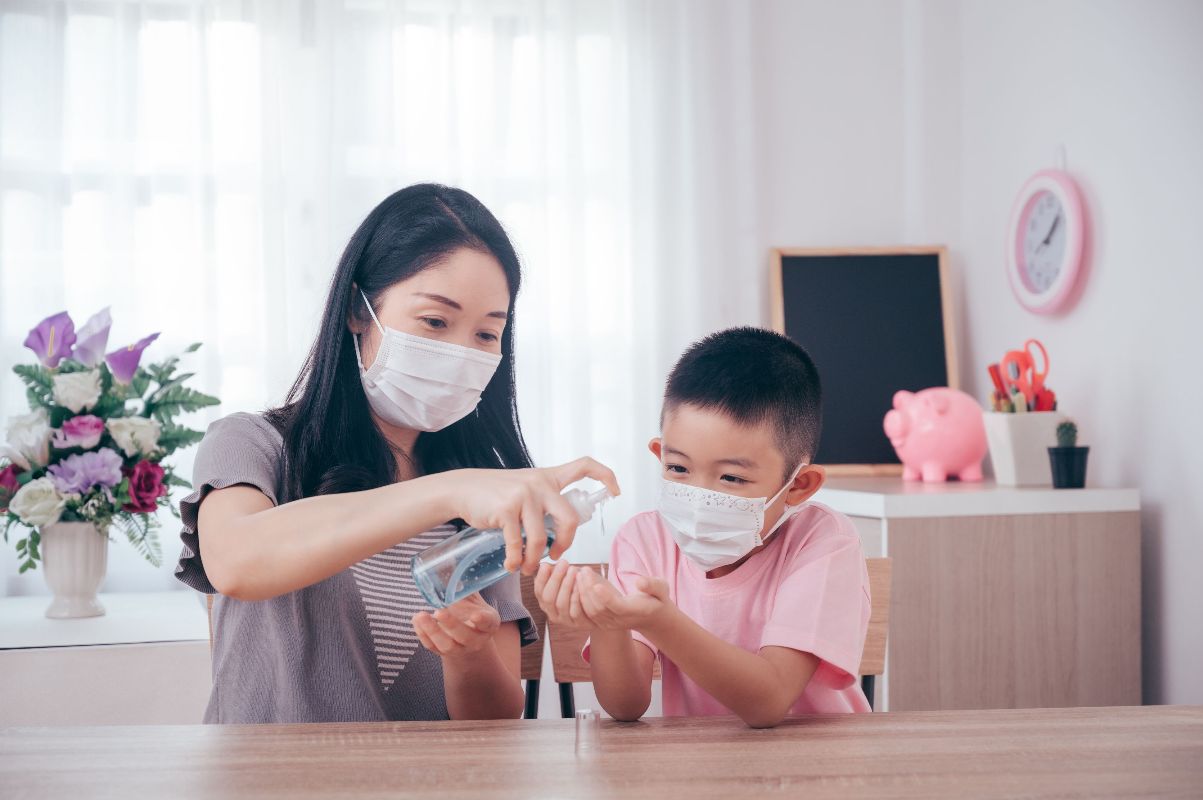
With new viruses emerging regularly, it’s more important than ever to follow the best hygiene practices and other tips to protect yourself and your family. Not only does this help you avoid getting a virus, but it’s also vital for reducing the risk of illness for older people, children and those with health issues.
Although it often takes a while to know exactly how new viruses are being spread, some general virus prevention tips have been proven to make a difference when faced with a range of different illnesses.
Following these 10 easy steps to protect yourself is simple, but it can make all the difference when it comes to taking care of your health.
1. Wash your hands
First and foremost, wash your hands regularly with soap and water – and do it properly. This means taking care to wash the backs of your hands, in-between fingers and under nails too for around 20 seconds before rinsing off. If you need help counting, you can sing Happy Birthday twice!
2. Carry hand sanitizer
If you’re out and about, it can be hard to access water and soap regularly, so carry a small bottle of hand sanitiser with you and use it regularly. These are proven to be effective at killing germs and are travel-friendly too.
3. Cover your mouth and nose
When you feel a cough or a sneeze coming on, make sure to cover your mouth and nose and expel it into your elbow instead. This helps prevent spreading germs through droplets.
4. Avoid touching your face
Touching your face is an easy way to transmit bacteria, so avoid touching your eyes, mouth and nose in particular. If you must, wash your hands thoroughly before.
5. Be extra vigilant with cleanliness at home and work
Most of us don’t disinfect our surfaces (or our devices!) nearly often enough, yet given how often we touch them they can become a hotspot for bacteria. Use a disinfectant spray and clean regularly, paying particular attention to mobile phones, laptops and remote controls.
6. Practice social distancing
Although it’s no fun to have to change or cancel your plans, when there’s a new virus outbreak this is often the most sensible course of action. Avoid people with any symptoms and keep away from busy areas such as concerts or public transport unless necessary.
7. Take care of your general health
If you do catch a virus, having a strong immune system can help protect you, so take steps to boost your immune system by eating well, staying hydrated and getting enough sleep.
8. Be a savvy traveller
When you’re using any form of public transport, try to keep a good distance from other people and avoid touching surfaces. Wash your hands or use hand sanitiser after your journey to eliminate any germs you may have picked up.
9. Stay home if you have symptoms
The last thing you want to do is be responsible for spreading a virus to other people, so if you have any symptoms that could be infectious, it’s better to be on the safe side and stay home until you feel better.
10. Seek medical advice
If you have any concerns about your symptoms, seek medical advice as soon as possible from a healthcare professional.
Want to subscribe to our newsletter? Click here.
Sources:
https://www.who.int/emergencies/diseases/novel-coronavirus-2019/advice-for-public
https://my.clevelandclinic.org/health/diseases/16769-how-to-avoid-catching-the-flu-and-other-viral-illnesses

